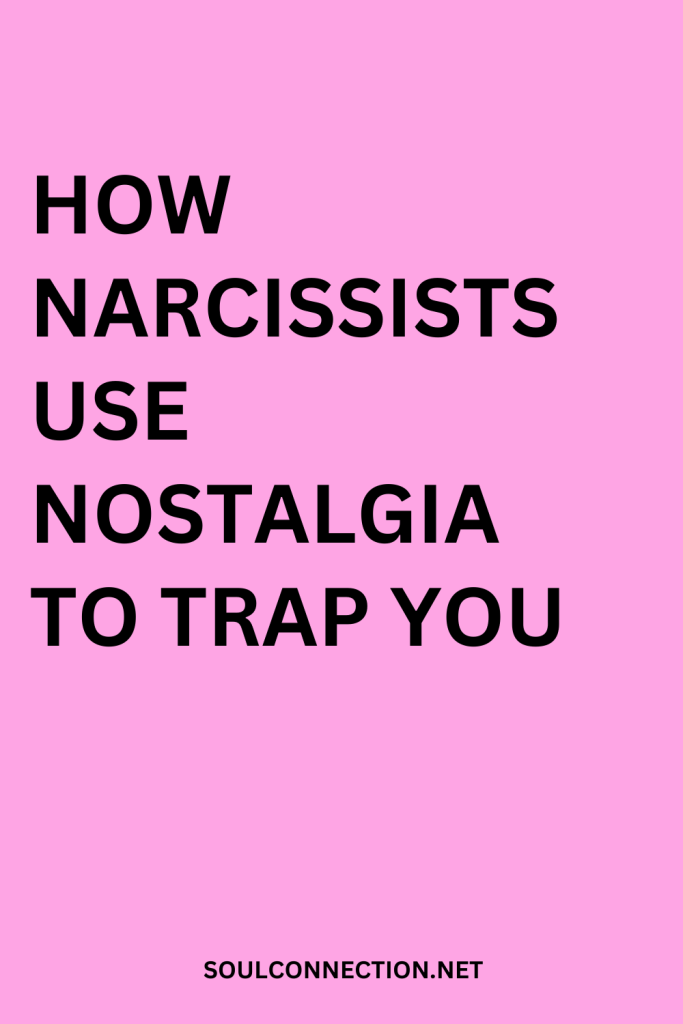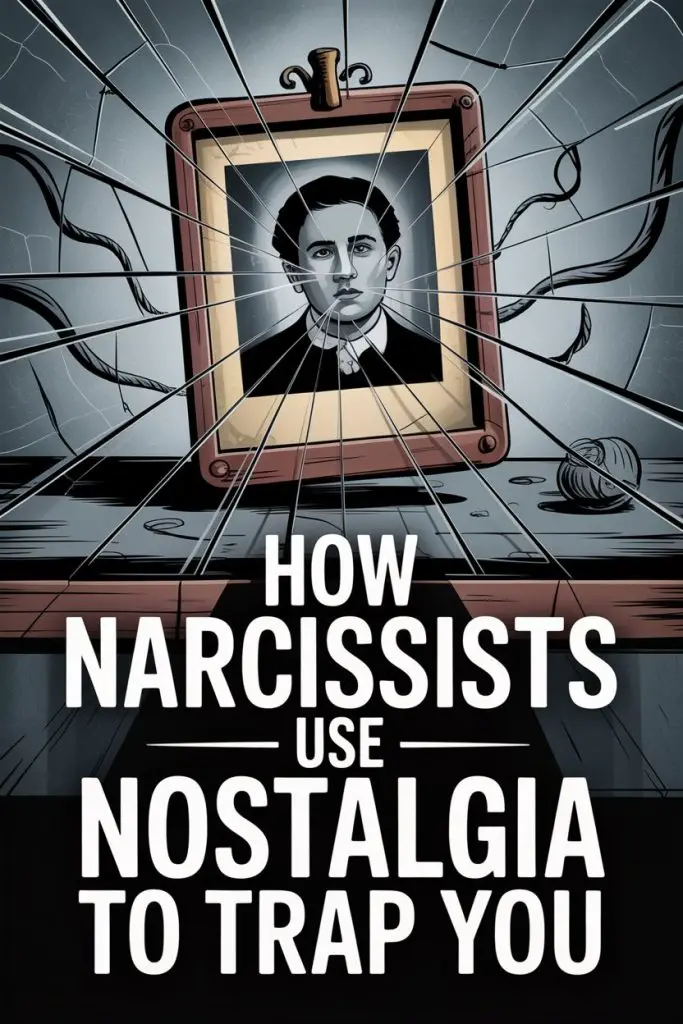Feeling a little dizzy from the emotional merry-go-round you’ve been riding with a narcissist? There’s a reason for that, and it’s probably wearing the mask of your happiest memories.
Narcissists, like magicians who specialize in emotional sleight-of-hand, know exactly how to wield nostalgia as both a shield and a weapon. Suddenly, even those moments you swore you’d never want to revisit start to shimmer with a suspicious glow.
Let’s see how these memory mixologists make it happen—and, crucially, how you can spot the trick before it pulls you under.
The Golden Age That Never Was
Step one in the narcissist’s playbook? Point at the past and claim it was all sunshine, rainbows, and your partner’s dazzling charm.
Forget the rainclouds, the awkward silences, the subtle digs or outright shouting matches. Those? Didn’t happen, apparently.
If you’ve heard, “Things used to be so good between us—what happened to you?”—congratulations, you’ve met the golden age myth. Narcissists love to paint your shared history in the kind of flattering light usually reserved for Instagram influencers.
By amping up memories of better times, they pressure you to “get back” to a relationship that probably never existed quite as blissfully as described.
Selective Memory as Performance Art
Selective amnesia isn’t just for sitcom plotlines. In the narcissist’s hands, it’s an art form.
Every argument where they crossed a line? Suddenly erased. Every sweet date or fleeting compliment? Emblazoned in gold, played on repeat.
This isn’t just self-delusion; it’s a deliberate attempt to reframe reality. They’ll insist, “Remember last summer when we laughed for hours by the lake?”
It’s a detail so specific you start to doubt your own recollection that the trip ended in tears. Gaslighting isn’t just about denying facts in the present—it’s about rewriting the whole story.
Emotional Blackmail Wrapped in Warm Fuzzies
When logic fails, weaponize nostalgia. That’s the motto.
During a fight, just when you’re ready to set boundaries or finally walk away, a narcissist will dig up “our special song,” a holiday tradition, or a goofy inside joke from better days.
Suddenly, you’re not arguing about chronic disrespect; you’re both laughing about the time you got lost on a road trip. That momentary warmth distracts you from whatever boundary you were about to enforce, ensuring the cycle continues.
This is emotional blackmail masquerading as sentimentality.
The Nostalgia-Bomb Apology
Narcissists rarely apologize without strings attached. But when they do attempt contrition, notice how often the apology comes swaddled in nostalgia.
Instead of, “I’m sorry I hurt you,” it’s, “Remember how much I love you? We’ve always been so good together. I just want us to get back to that.”
Suddenly, the conversation isn’t about their behavior; it’s about your collective history and your responsibility to preserve it.
Feeling guilty yet? That’s the point.
Turning Your Memories Against You
One of the most insidious tactics involves weaponizing your own happy memories. The narcissist becomes the curator of your most cherished moments, reminding you of every time you leaned on them, laughed together, or felt seen.
It’s a subtle message: Surely someone who gave you those moments can’t be all bad, right? Maybe the current pain is your fault for changing—because after all, the past was perfect.
They plant doubt about your own perceptions, making you second-guess your need for change or distance.
The Reunion Fantasy
Just when you’re gathering the courage to move forward, a narcissist will lure you with dreams of “getting back to how things were.” This isn’t about growth or working through issues; it’s a promise to rewind, as if time travel were on the menu.
You’ll hear, “We can be like we used to, if you’d just…”—followed by a list of requirements that inevitably require you to shrink yourself, dismiss your own needs, or forget they ever hurt you.
The reunion fantasy is enticing, because nostalgia makes even the roughest times seem softer around the edges.
How to Defuse the Nostalgia Trap
Spotting the trap is the first step; wriggling free is something else entirely. If you keep finding yourself seduced by memories of the “good old days,” try these strategies:
- Write it down. Keep a journal of how you actually feel, not just what you remember. When the nostalgia wave hits, reality will be there in black and white.
- Reality check with friends. Discuss your experiences with people you trust, preferably those who witnessed your relationship. Sometimes an outside perspective is the only thing keeping you tethered to the present.
- Separate memories from patterns. Enjoying a single magical evening doesn’t erase a pattern of disrespect or manipulation. History matters, but so does what’s happening now.
- Resist the reunion fantasy. That old magic probably wasn’t as magical as you remember. Growth means moving forward, not time traveling backward into someone else’s narrative.
When Nostalgia Means Danger
It’s tempting to think of nostalgia as harmless. But when wielded by a narcissist, it becomes a leash.
The more you’re coaxed to live in the past, the easier it is for them to avoid accountability—and the harder it is for you to picture a future on your own terms.
If your partner’s version of “the good old days” comes with guilt trips, gaslighting, or pressure to ignore real issues, take that as your flashing neon sign. Nostalgia isn’t always comfort food; sometimes it’s a lure.
Reclaiming Your Memories
Walking away from someone who hijacks your happiest memories is no small feat.
But the good news? Those moments are still yours, no matter how hard someone else tries to spin them. You get to decide which memories to cherish, and which to pop in the emotional recycling bin.
Give yourself permission to grieve the good times—without letting them dictate your future.
Building a Future That’s Yours
Learning to spot these nostalgia traps is like finally getting the magician’s secrets: you see the wires, the mirrors, the sleight-of-hand. The spell loses its power.
Real love doesn’t hold your memories hostage or demand that you perform for the sake of a history that never quite was. Real love grows, adapts, sometimes stumbles—but it never needs to rewrite the past to justify the present.
The memories that matter most? The ones you make when you’re free to be yourself, not someone else’s idealized blast from the past.


